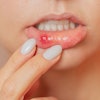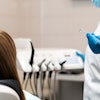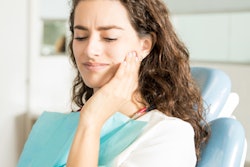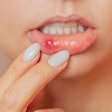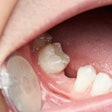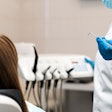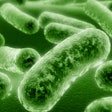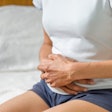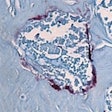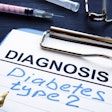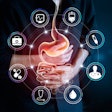Dear DrBicuspid Member,
Our top story of the week covered a new study that indicates triclosan, an antimicrobial agent found in oral care products, may be associated with chronic digestive diseases. In the study in mice, microbial enzymes reactivated triclosan in the gastrointestinal tract, which induced colitis, a type of irritable bowel disease.
In the past decade, researchers and activists have raised concerns about the use of triclosan in everyday products. Prior studies have linked the antimicrobial agent to osteoporosis, colon cancer, liver toxicity, impaired cardiac function, and more. In 2016, the U.S. Food and Drug Administration removed triclosan from over-the-counter soaps, but it can still be found in toothpaste, mouthwash, shaving cream, and toys.
Dentists remain reluctant to get COVID-19 jabs
Many practicing dentists and dental students throughout the world remain reluctant to receive vaccinations for COVID-19, according to a new perspective in the Journal of Dental Sciences. Nearly one in four dental students and one and in five practicing dentists refused COVID-19 vaccination, researchers found.
The scoping review included data from 2,983 practicing dentists and 7,805 dental students. Dental professionals who refused the vaccine cited concerns about safety, efficacy, and side effects, as well as distrust of pharmaceutical companies, the government, and healthcare organizations.
So you pulled the wrong tooth ...
When faced with a harmful event, such as pulling the wrong tooth, it's essential to respond in a way that supports patients and their families, according to a webinar presented by the ADA Council on Advocacy for Access and Prevention.
During the webinar, Dr. Thomas H. Gallagher offered tips for how to embrace transparency and communicate with patients in a way that is truthful, supportive, and empathetic. He also cautioned that dentists who fail to respond to harmful events can face several consequences, including an increased likelihood of litigation.
Formula use, breastfeeding affect the oral microbiome
New research suggests that infants who are formula fed share more of their mothers' oral microbiome than babies who are only breastfed. In other words, the colonization of a mother's oral bacteria was higher in formula-fed infants.
The researchers don't know exactly why feeding styles affected infants' oral microbiomes, but they offered two hypotheses. First, breast milk may offer a protective factor against oral bacterial colonization, and second, the substances in milk or formula may directly influence the oral microbiome.
Announcing the Cuspies 2021 finalists
Last but not least, you definitely want to see the people, products, and events that DrBicuspid.com readers selected as finalists for the 2021 Cuspies awards. The awards embody the best and brightest in dentistry this past year.
More than 700 DrBicupsid.com readers voted for their favorite candidates across 12 categories. This was one of the most competitive years yet for the event, with several finalists being decided by just one vote.
